This website uses cookies so that we can provide you with the best user experience possible. Cookie information is stored in your browser and performs functions such as recognising you when you return to our website and helping our team to understand which sections of the website you find most interesting and useful.
The Bezos vs Branson Star Wars: a new frontier?
By Gabriel Power | 18 August 2021 | Culture, Wealth,
Space exploration was once solely the domain of highly trained astronauts. Now, a handful of billionaires are launching the world into an age where the sky is no longer the limit. But are we really prepared for a mogul-led space race?
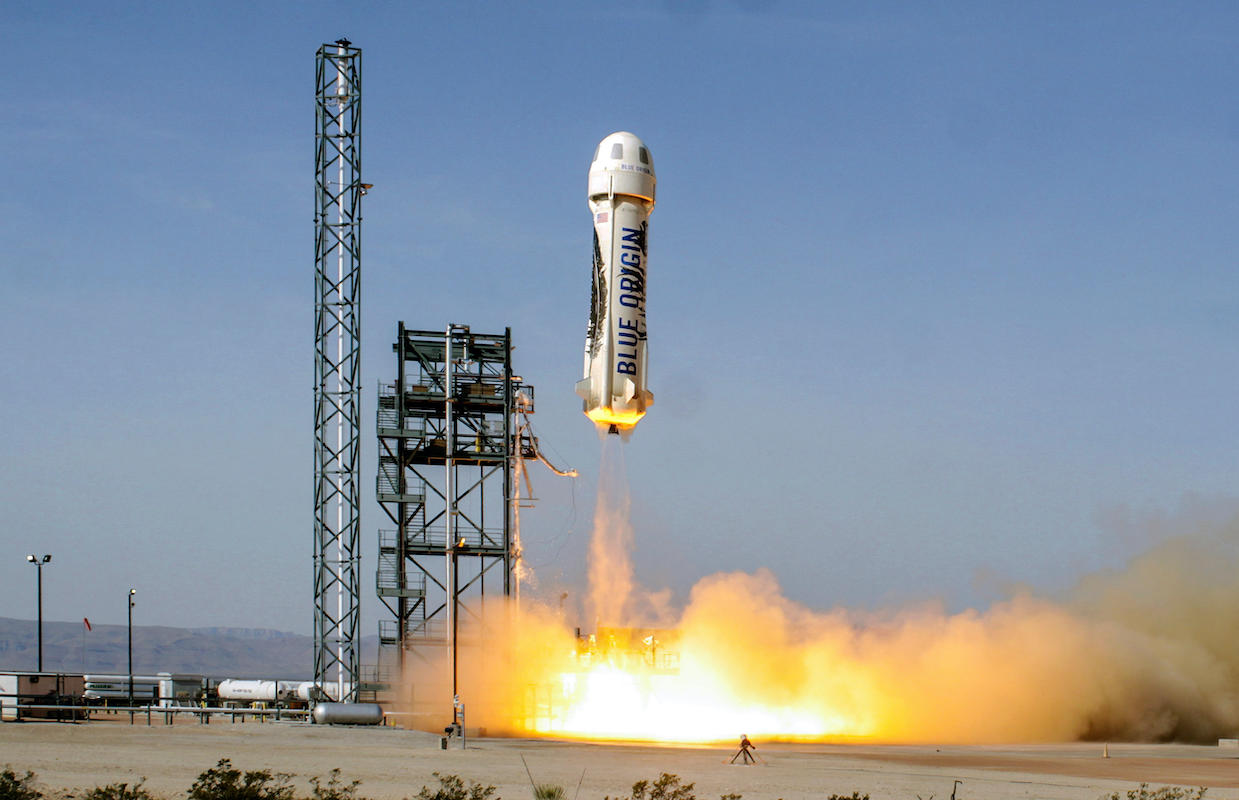
Never has the age-old capitalist mantra of “competition drives innovation” felt so literal as in the last few months of the modern space race. July 2021 saw a small group of the world’s richest men engage in an unprecedentedly grandiose game of one-upmanship, which has already seen two of them – Jeff Bezos and Sir Richard Branson – personally head beyond the bounds of Earth’s gravity in specially made vehicles.
On paper, each has their own reasons for going into space, be it for research, commercial space travel or for the establishment of legitimate space-based industry, and these latest breakthroughs are undoubtedly significant to the fulfilment of these diverse goals. But with such eccentric personalities at the helm, was this ever likely to be a good-natured competition?
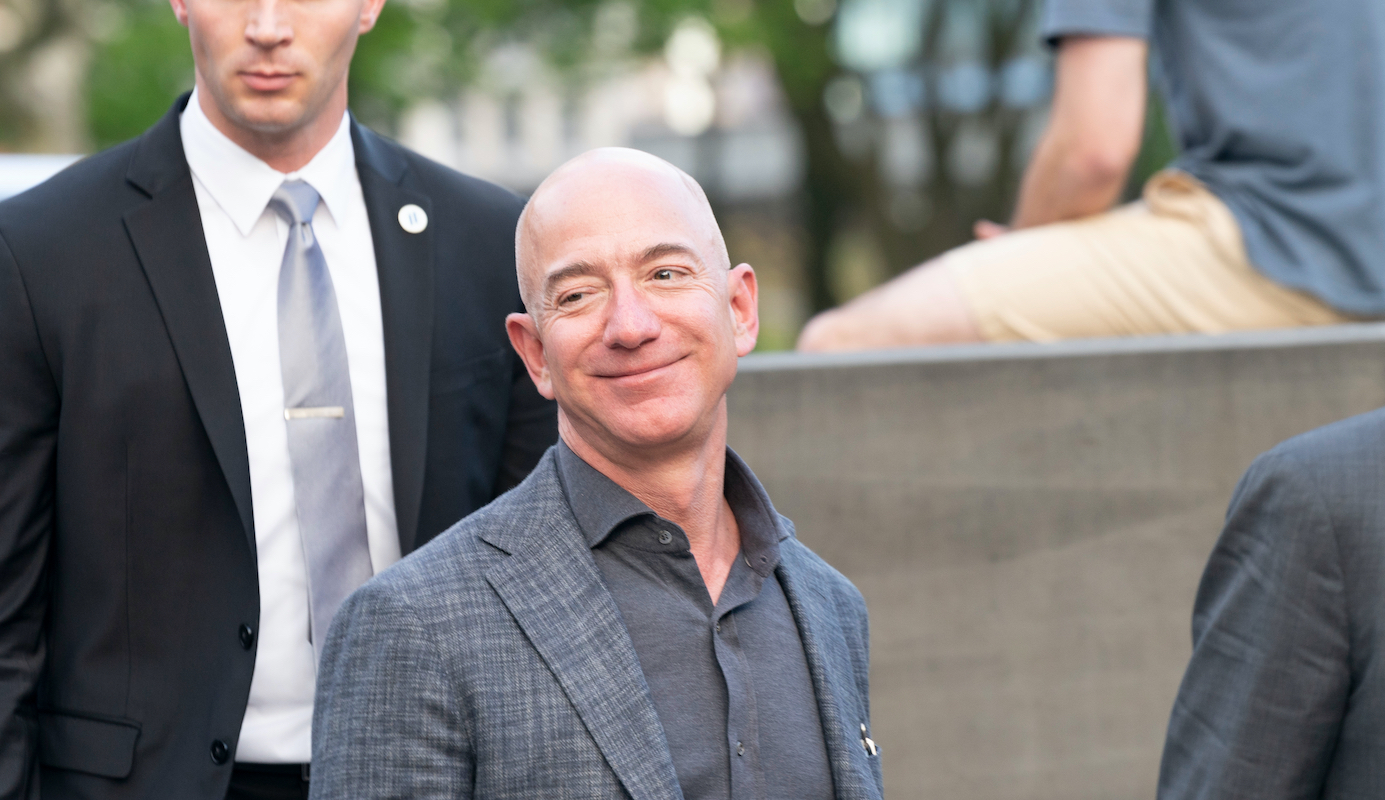
On 7 July, Amazon founder and world’s wealthiest man Jeff Bezos announced that he would be joining the passengers of first crewed flight of the New Shepard suborbital vehicle, manufactured by his aerospace firm Blue Origin. The 11-minute flight, which took place on 20 July, was effectively a first step in Bezos’ long-term plan for Blue Origin to “take all polluting industry, all heavy industries and move it off Earth”.
But, in a continuation of the popcorn-worthy feud between Bezos and Virgin Galactic founder Branson – until this point restricted to competing press releases, public announcements and the occasional Twitter jab – the British billionaire was not about to let his American counterpart steal the limelight.
Just two days later, on 9 July, Branson announced that he would also be heading into space on his VSS Unity suborbital vehicle – 17 years after founding Virgin Galactic’s mission statement of establishing commercial spaceflight. What’s more, he’d be launching nine days earlier than Bezos.
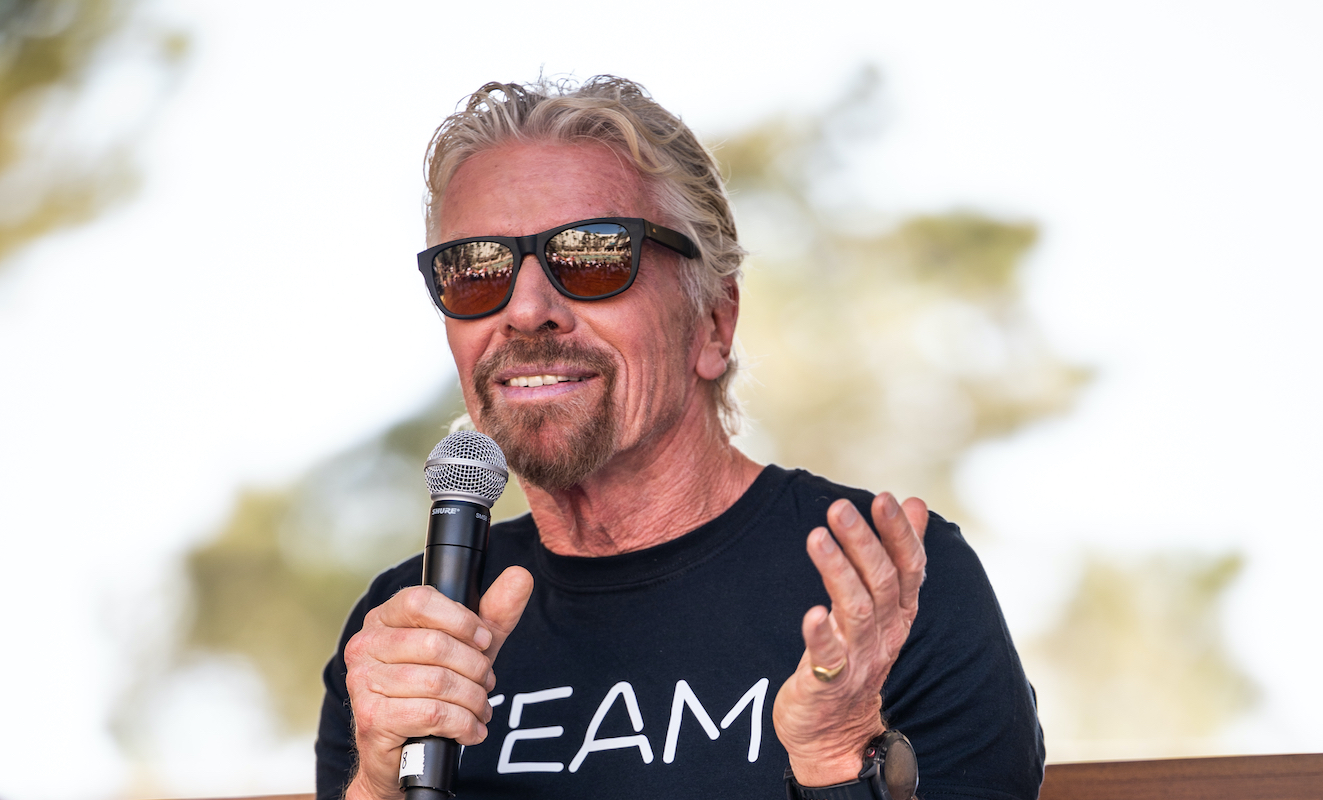
With the dates set, the sense of competition began to flare. On 11 July Branson, 77, became the second-oldest person to ever leave Earth’s atmosphere, behind US astronaut John Glenn (who was 77 when he boarded the space shuttle Discovery in 1998). Bezos then announced that he would be joined in the New Shepard by veteran US pilot Mary Wallace “Wally” Funk, 82, who would subsequently take the crown of the oldest person in space, bumping Branson down into third place.
Furthermore, once Branson had announced his plan to skirt the boundaries of the atmosphere, Blue Origin CEO Bob Smith stated that Virgin Galactic’s claim to space travel was potentially illegitimate because “they’re not flying above the Kármán line” – a hypothetical “border” between the atmosphere and space at approximately 100km above the Earth. Blue Origin vehicles surpass that altitude; Virgin Galactic flights do not. Neither launch, however, reached orbital flight.
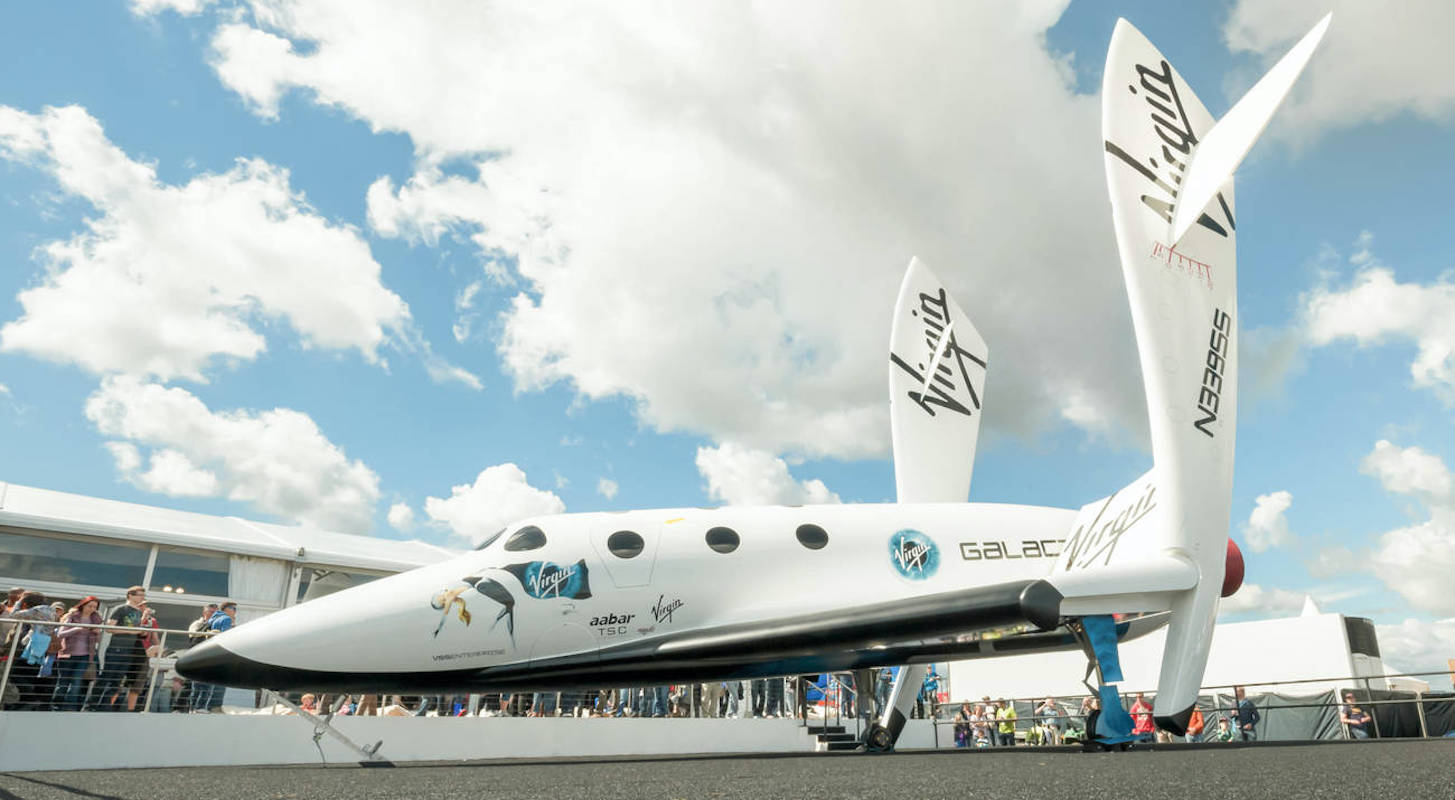
COMMERCIAL SPACE
Although Bezos and Branson have been making headlines with their hands-on approach to visiting space, they are far from the only participants in this new race into the great unknown.
Axiom Space Inc., founded in 2016 by businessmen Michael Suffredini and Kam Ghaffarian, plans to launch private flights to the International Space Station and set up its own commercial space station in the coming years – with its first commercial trip to the International Space Station planned for 2022.
Meanwhile, a more traditional approach is being considered by Russian-Israeli billionaire physicist Yuri Milner, whose Breakthrough Starshot project – co-founded by the late Professor Stephen Hawking and Facebook founder Mark Zuckerberg – is looking to send a probe to the Alpha Centauri star system 4.37 light-years away for research purposes.
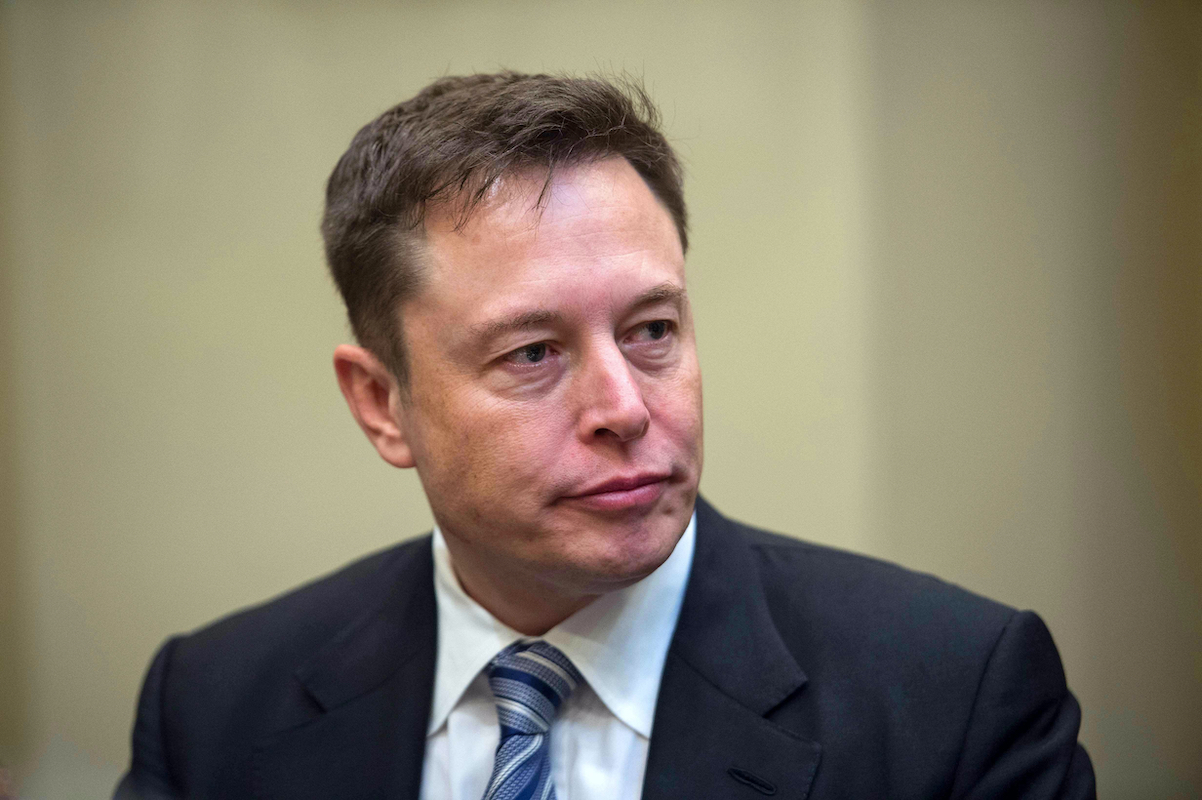
Meanwhile, Tesla founder Elon Musk, whose private space exploration firm SpaceX has beaten Blue Origin and Virgin Galactic to the punch multiple times when pushing the limits of private space enterprise, has not commented on the latest launches by his commercial space rivals. Musk’s ambitions include founding a permanent human presence on Mars.
Interestingly, the multiple personalities involved in this layered, Twitter-fuelled competition have vastly different visions for their respective companies’ forays into space exploration – industry versus research versus commercial spaceflight – but also use entirely different, non-competing technologies from one another.
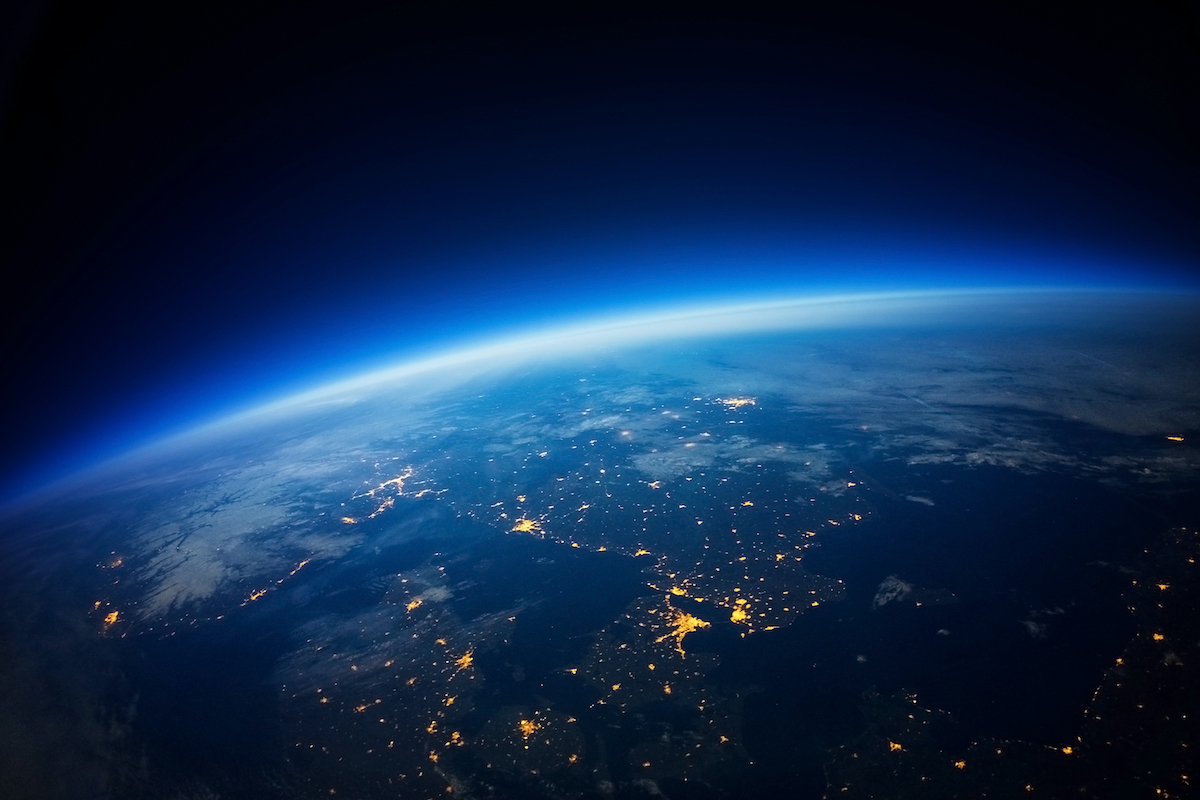
It is clear, when looking at mission statements alone, that this is not a repeat of the great Space Race that once pitted the US and USSR against one another. During that era, the two global superpowers effectively worked toward the same goal; harnessing the power of space for military and scientific advancement, with both sides pushing the limits of technology and taking humanity to frontiers we had previously thought impossible.
Now, with the great global superpowers no longer prioritising space exploration, and many space agencies – including NASA and the European Space Station – at something of a low financial ebb, the world has effectively given these eccentric, ambitious captains of industry carte blanche to take us along with them into the next stage of spaceflight.
But with such a vastly different array of goals and the absence of transparency that comes with state-sanctioned space exploration, where we end up in the next five, 10 or 20 years is anyone’s guess. We are at a fork in the road of our current timeline: skip forward a decade or two and we could be digging for basalt on the surface of Venus, vacationing on Elon Musk’s Martian colony, or scratching our heads on abandoned launchpads in Texas, wondering where it all went wrong.







